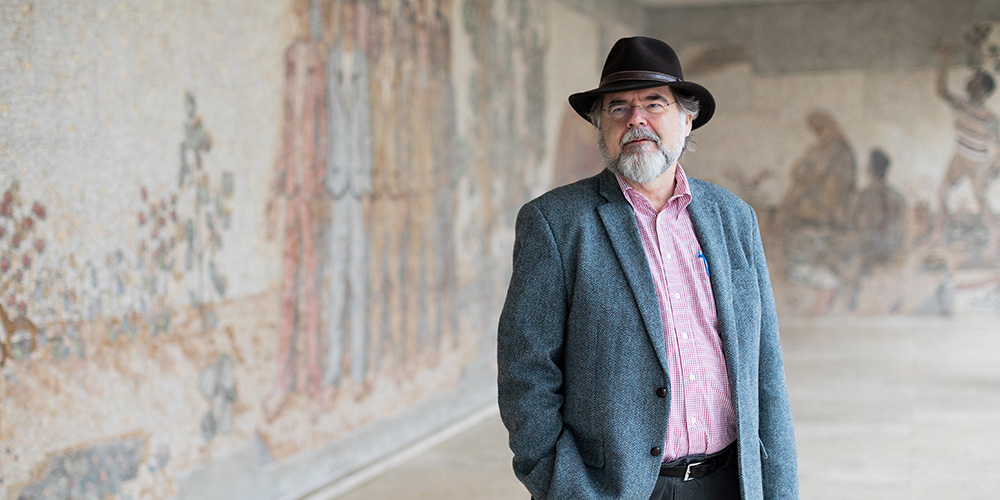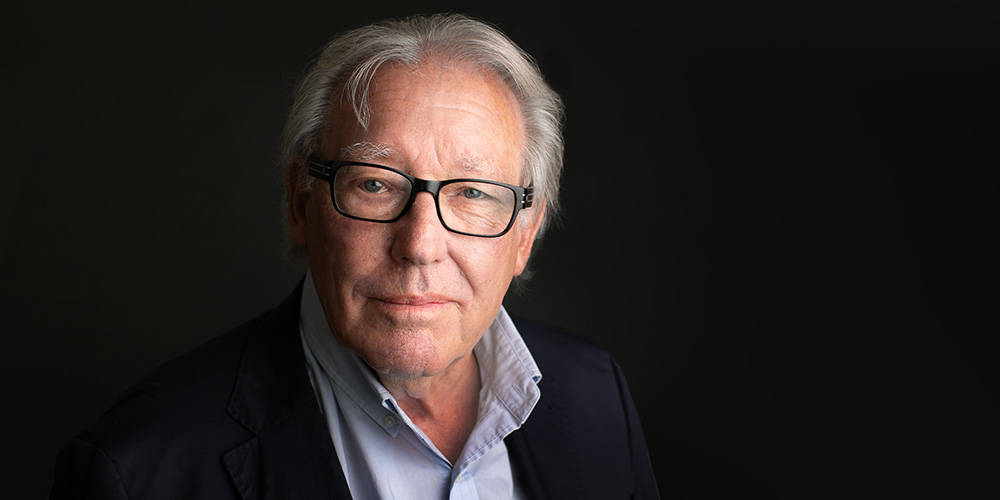“For a long time, the professors were unwilling to recognize the sheer criminality of the new regime.”
Historian Christian Simon has studied the history of the University of Basel during the National Socialist dictatorship. He says the professors struggled to distance themselves from the German higher education system.
12 January 2023 | Urs Hafner
Mr. Simon, the National Socialists came to power in Germany in 1933. As responsible intellectuals, did professors at the University of Basel warn Basel’s government of the looming danger from their neighboring country?
On the contrary – it was the politicians who urged the university to distance itself from Germany’s Nazified higher education system. The left-wing majority in the Basel government prohibited the university from attending academic functions in Germany, and Director of Education Fritz Hauser expressed his condemnation of antisemitism.
What view do you take of the academics’ behavior?
My job as a historian is to explain why the academics acted in the way they did. Some professors were unwilling to recognize the sheer criminality of the new regime and initially played down the persecution of the Jews. The Germanic philologist Andreas Heusler admired Hitler until 1938 for his desire to restore Germany to its former glory. On the other hand, the legal philosopher Arthur Baumgarten – who was under the impression that the bourgeoisie had aligned themselves with the Nazis – converted from a liberal to a communist and denied the crimes of Stalin.
Why did scholars and researchers not criticize National Socialism in clearer terms?
Most professors took the view that, since the Russian Revolution and the Swiss general strike of 1918, the threat to the bourgeois order had been from socialists and communists. Their fear of a revolution led them to underestimate fascism. Moreover, the University of Basel was integrated into Germany’s academic landscape in the sense that almost every career involved studying and taking up an academic position in Germany. Likewise, Swiss academics were members of German student bodies and professional associations, published their work through German publishing houses, and maintained friendships with German colleagues. There was also the ideal of keeping academia and politics separate, without which it was supposedly impossible for unbiased academia to thrive.
The academics wanted to remain apolitical – and by doing so, they became precisely the opposite?
The professors clung to the illusion of having nothing to do with politics, despite attending conferences where they sat alongside SA uniforms under swastika flags and listened to talks about the principles of “Aryan science.” After all, they were convinced that the left-wing Department of Education wanted to downgrade their university into an ordinary school. They were fighting for freedom of teaching and research, which was guaranteed in the new University Act in 1937.
How did the left-wing professors behave?
The overwhelming majority of professors were on the side of the bourgeoisie. There was undoubtedly some occasional criticism of Hitler’s dictatorship among professors – for example, on the part of Protestant theologians and jurists. The theologians had witnessed the oppression of their colleagues in totalitarian Germany, and their faith led them to condemn the Nazis’ attacks on the Church. The Faculty of Theology took in colleagues who had been forced to leave Germany – among them Karl Barth, a key voice of opposition to National Socialism. For their part, humanitarian classicists perceived European culture and the freedom of the individual to be under threat.
You mentioned jurists earlier. What was their view of the situation?
They defended democracy and the rule of law. I’m particularly impressed by the rejection of Nazi ideology by the biologist Adolf Portmann, who fought against the appropriation of zoology and the theory of evolution and demonstrated that racial theory was a pseudoscience.
What position did the students take?
There was a small socialist group that informed the press of National Socialist activity at the university, but that was something of an exception. The students were poorly equipped for radical resistance because they didn’t think liberalism and democracy were capable of dealing with the crisis of the day. They believed that economic interest groups would dominate parliament and that the confrontation between “left” and “right” made it impossible to escape from the economic crisis. In politics, they felt there was a lack of morality and idealism. Many hoped for an authoritarian Swiss state.
What advice do you have for today’s researchers when it comes to relationships with colleagues in Russia or China?
Historical works don’t qualify their authors to judge the present, and the past is always different from today. Nevertheless, there’s one lesson I would draw: you should stay in touch with researchers living under dictatorships as long as you’re sure they haven’t been instrumentalized by the regime. Professional and personal exchange reduces their isolation and can help to prepare them – and us – for life after the dictatorship.
And what should universities do?
It’s all well and good to condemn the Russian invasion of Ukraine, but it’s also worth discussing the whole idea of collaborating with higher education institutions and academies run by authoritarian regimes, because they might take advantage of this cooperation for propaganda purposes. This is another of the insights I’ve gained: it’s always difficult for contemporaries to fully comprehend a totalitarian regime, both from the outside and from the inside.
The history of the University of Basel from 1933 to 1945
Christian Simon is a science historian and emeritus associate professor of modern European and Swiss history at the University of Basel. He has written on the history of historiography, the chemical/pharmaceutical industry, biology and the University of Basel. Published by Schwabe Verlag, his comprehensive study An der Peripherie des nazifizierten deutschen Hochschulsystems. Zur Geschichte der Universität Basel 1933–1945 (On the periphery of the Nazified German higher education system – the history of the University of Basel from 1933 to 1945) offers a detailed and nuanced picture of the university during this period.



